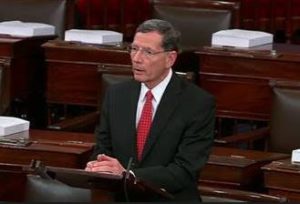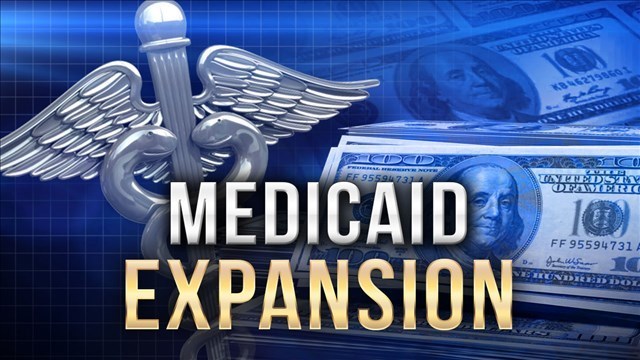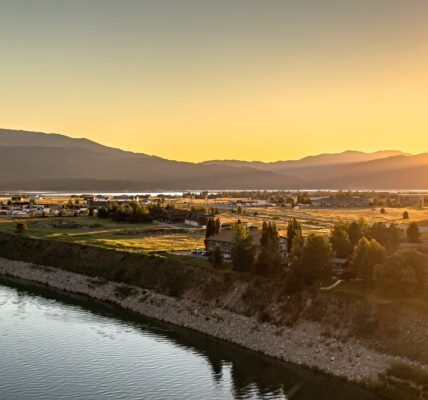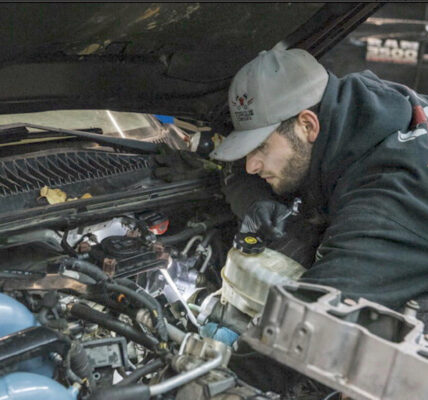By Clair McFarland
Riverton Ranger
Via- Wyoming News Exchange

RIVERTON — U.S. Sen. John Barrasso thinks Wyoming should decide against expanding Medicaid.
Acknowledging that the decision is a matter for state government, not the U.S. Senate, Wyoming’s senior senator said he worried about the efficiency and accountability of the proposed expansion of the low-income health insurance program in the state.
Medicaid reimbursement expansion was authorized for states under the Affordable Care Act of 2014. Wyoming is one of a dozen states not to adopt the expansion availability, which analysts say could bring basic health coverage to as many as 38,000 residents who now have no health insurance.
Most estimates say Medicaid expansion could insure about 24,000 residents. Some analysis puts the figure as low as 13,000 residents.
“I always felt, when I was in the state Legislature and we looked at Medicaid’s spending, that we could do a much better job in Wyoming,” Barrasso said, “doing it the Wyoming way, than having Washington mandates say how we had to do it here in Wyoming,” Barrasso said Thursday in Lander, where he was attending a Veterans Day event.
He pointed to overspending reported recently by the Centers of Medicaid and Medicare Services, which are compelled by the Payment Integrity Information Act of 2019 to review their programs periodically and identify improper payouts and other issues.
In the report, Medicaid said it over-funded or otherwise misspent about $144 billion in public funds in 2019 and 2020 –– with $57.36 billion in 2019 and $86.49 billion leaked in 2020 as defined under the law.
“It’s really a concern when you see the kind of abuse in federal dollars in states all around the country,” Barrasso said. “And as Wyoming is considering Medicaid expansion… you want to make sure people get value for their money, (that) taxpayers get value for their money.”
Barrasso said he hoped that on a smaller, individualized scale, people instead could “partner with whoever it is that’s providing care for you.
“I just get concerned with government over-involvement in some of these programs,” he said.
House Bill 162, labeled “Medical Treatment Opportunity Act,” made it further in the Legislature during the March session than a comparable Senate version, passing the House 32-28 before dying in the Senate Labor Committee 2-3.
The bill would have expanded Medicaid access to any non-disabled, childless adult earning less than 138 percent of the federal poverty level, by invoking a federal reimbursement of 90 percent for the added patients.
Asked what benefits Wyoming might expect from the $1.3 trillion infrastructure bill, Barrasso said “it does have things that will help Wyoming in terms of some construction, highway funds, water projects,” Barrasso said.
“Overall, I voted against the bill, because there was just so much additional –– what I consider –– wasteful Washington spending.” He denounced the “billions and billions of dollars for Amtrak” as “not necessary,” and the inevitable compounding of the federal deficit.
“The bigger issue” in the bill, he said, is the $1.75 spending bill currently proposed. The senator projected “an army of auditors, to try to squeeze taxpayers for more dollars,” as well as “green energy punishments.”
Barrasso said that traditional and renewable energy sources all are needed.
“We need wind, we need solar –– the world needs it all, and Wyoming is the energy capital and can provide it all,” he said.
He added that the favoritism shown green energy proposals could damage a gradual market transition to renewables that Wyoming is prepared to make on its own, while exacerbating inflation.
The U.S. Department of Labor reported last week that the U.S. inflation rate reached a 31-year-high this year.






